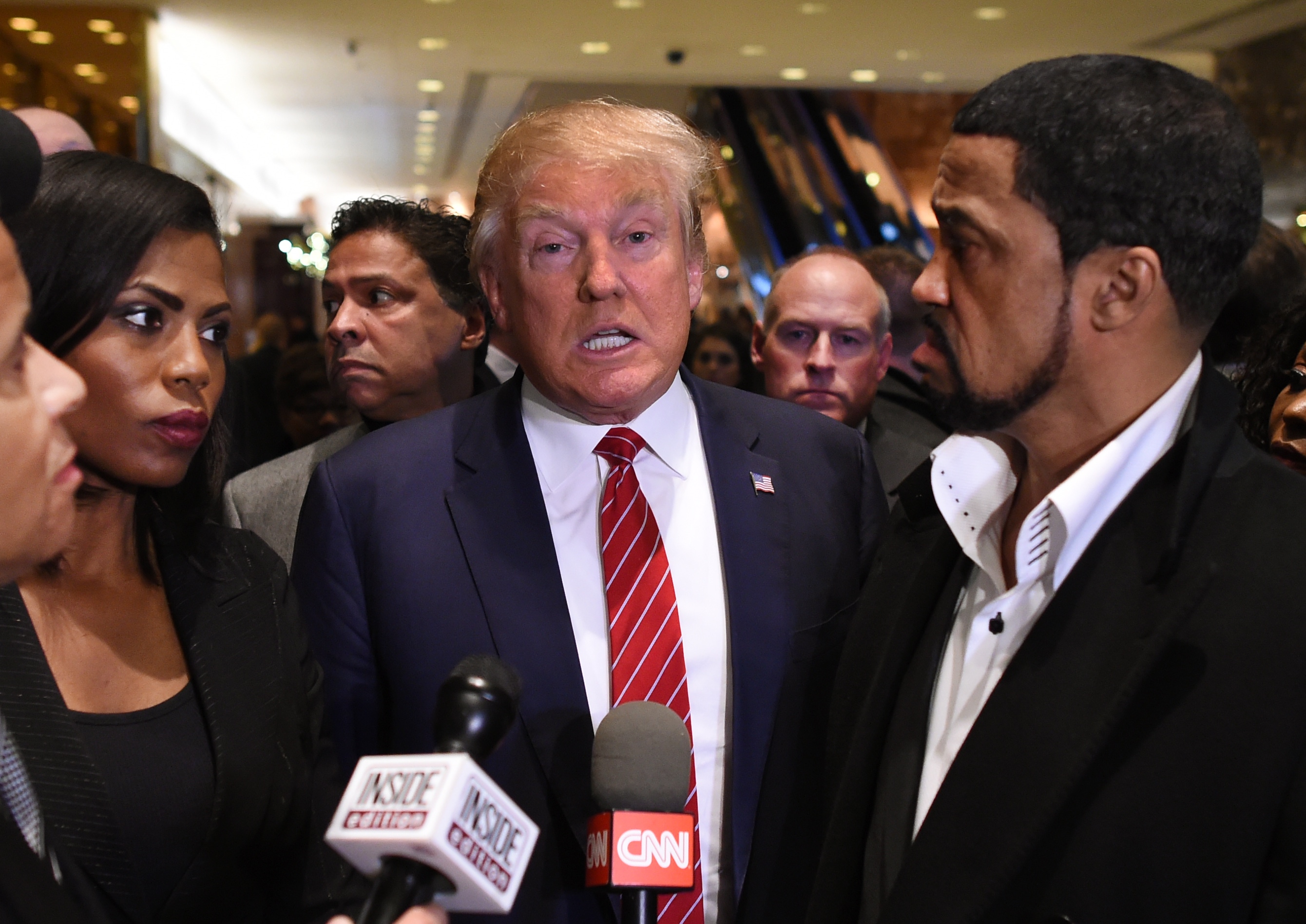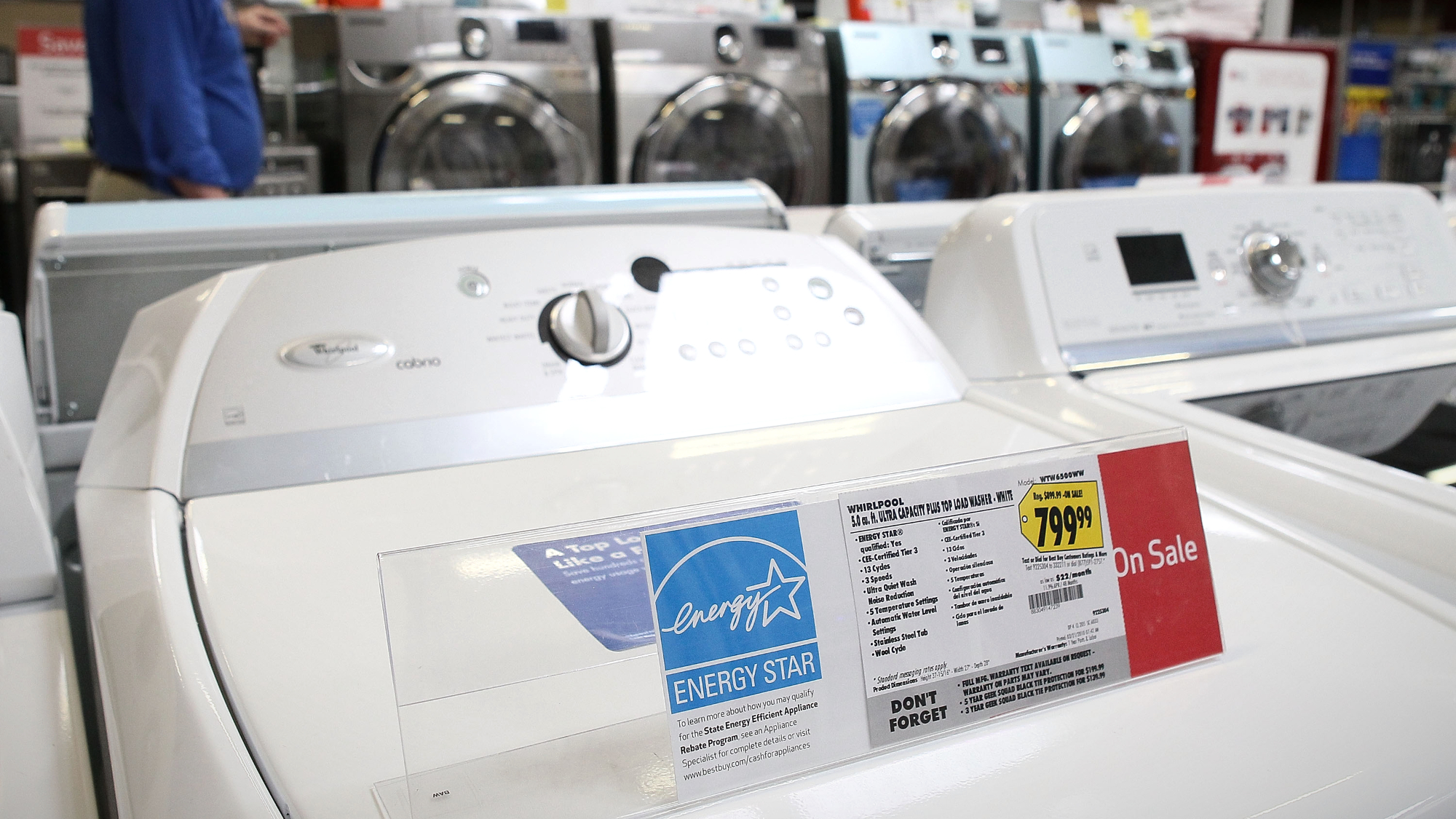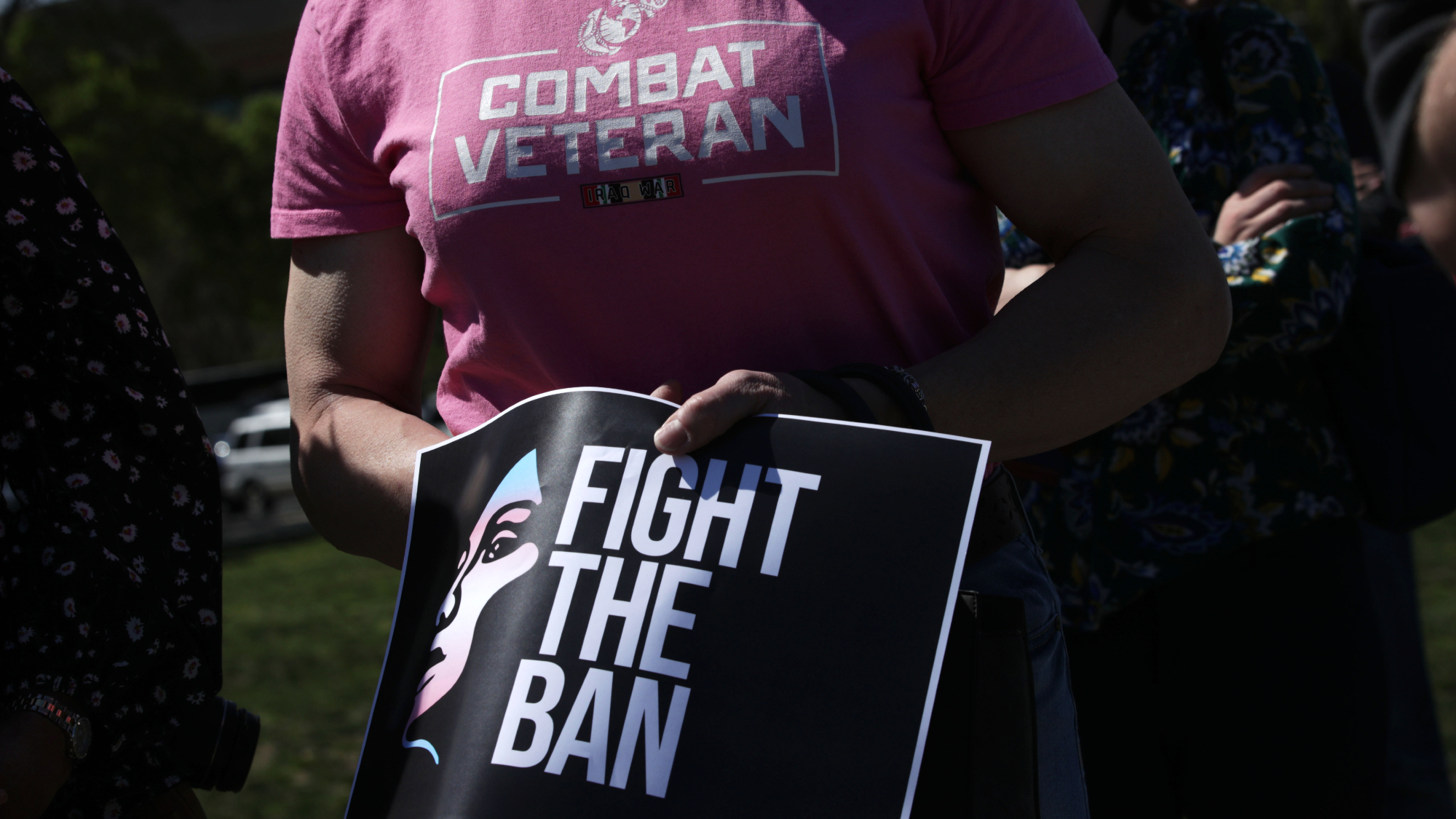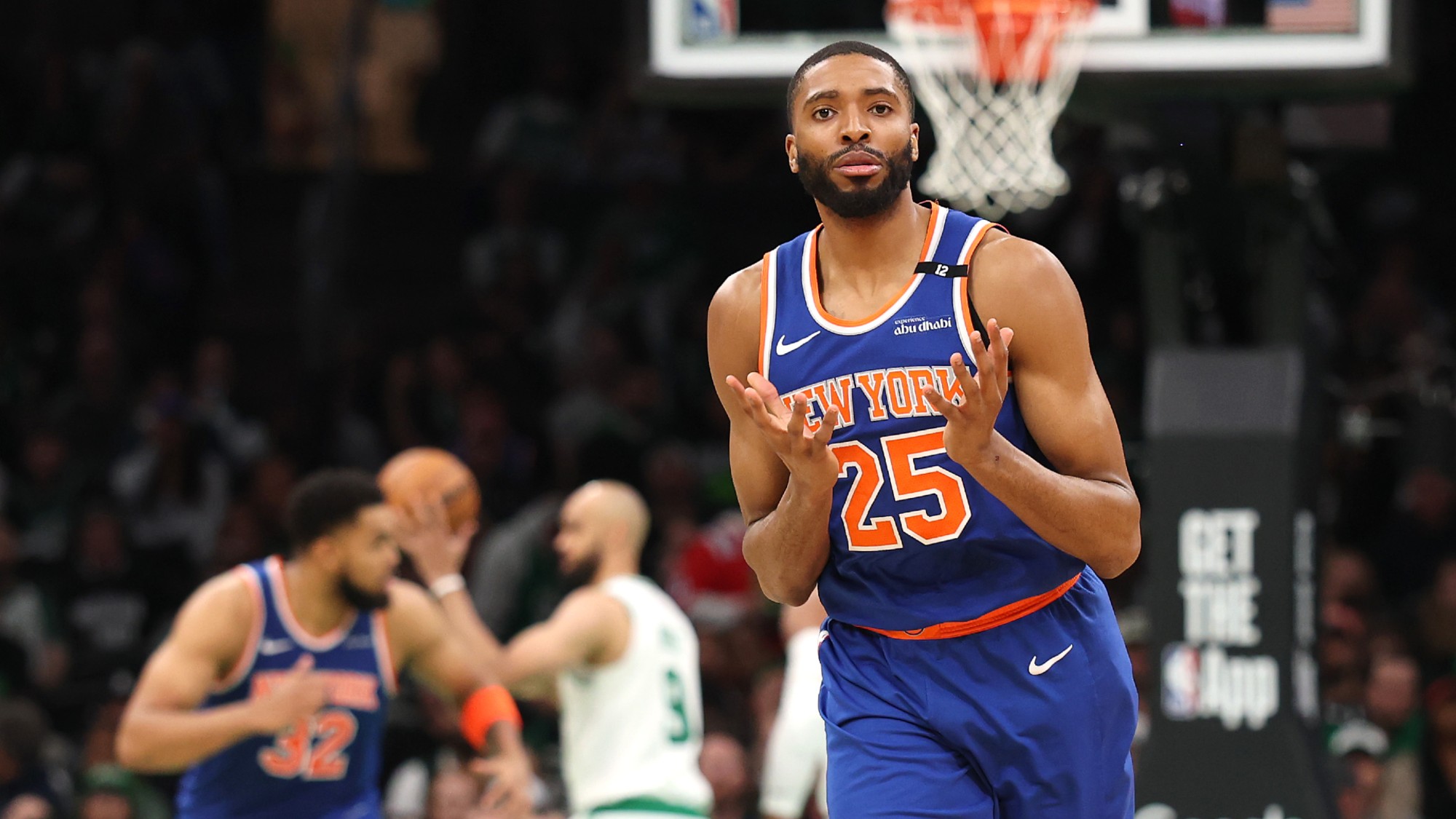The biggest reason for the GOP's black voter problem? Apathy.
The Republican Party still doesn't care about black voters. This needs to change.


Hey, remember when the GOP said it would try to reach out to black voters?
In the wake of the Republican Party's crushing loss in 2012, it made a big show of trying to woo black voters. The RNC even hired a bunch of young, smart, black Republicans to work on outreach efforts.
It was a pretty good idea, too, since without its super majorities of the black vote, the Democratic Party becomes uncompetitive nationally. More importantly, though, if you're living in a country where one political party has a super majority of the white vote and the other a super majority of the black vote, maybe that's a problem and you should do something about it?
Subscribe to The Week
Escape your echo chamber. Get the facts behind the news, plus analysis from multiple perspectives.

Sign up for The Week's Free Newsletters
From our morning news briefing to a weekly Good News Newsletter, get the best of The Week delivered directly to your inbox.
From our morning news briefing to a weekly Good News Newsletter, get the best of The Week delivered directly to your inbox.
But all of those black Republicans are gone now. And a story in The New Republic by two scholars, Theodore R. Johnson and Leah Wright Rigueur, notes instances of casual racism by state-level GOP grandees towards black staffers.
The reasons why black voters don't want to vote for the GOP are well known. They aren't driven so much by policy — spend enough time in an African-American church, and you will hear things said about welfare and crime that would make Newt Gingrich blanch — but by the perception that the GOP doesn't have black people's interests at heart.
In a way, this is deeply unfair. The most successful anti-poverty programs of the past 30 years have been the Earned-Income Tax Credit and welfare reform, both Republican efforts. According to the Center for Budget and Policy Priorities, the EITC lifted 9.4 million people (including five million children) out of poverty and improved the lives of 22 million more. As the scholar Scott Winship points out, the poverty rate basically didn't change between 1967 and 1993. But after welfare reform, poverty, especially child poverty, plummeted, even as welfare rolls shrank and work was boosted to an unprecedented degree. This is probably why 2008 Barack Obama praised welfare reform, even though he had opposed it at the time.
And perhaps the single biggest obstacle to black empowerment has been bankrupt school bureaucracies supported by teachers' unions which are a pillar of the Democratic Party. Conservatives have also taken the lead on prison reform.
But in another way, the perception is perfectly accurate. Most Republican elected officials and staffers don't actually care about the interests of the black community. And it shows in their actions and priorities. This isn't just about the infamous Southern strategy or any specific policy; it's about the fact that most Republican officeholders don't see the black community as an important constituency.
And, of course, there is the case of Donald Trump, whose candidacy is transparently about white identity politics.
America's growing ethnic diversity isn't happening without problems, and racial polarization, while perhaps not unavoidable, is also not surprising. And let's not say the GOP is only to blame. Obama's deft trolling of the GOP seems almost designed as a kind of "Southern strategy in reverse," in a context where the Democratic Party needs a high turnout among minorities to win elections yet is running an underwhelming rich, old, white, out of touch candidate. To a much greater extent than the GOP, the Democratic Party's electoral playbook requires that the electorate be, and remain, polarized along racial lines.
That being said, just because the Democrats are baiting doesn't mean the GOP should take the bait. And it remains an uncomfortable fact that white identity politics remain attractive to many voters and, therefore, many politicians. Johnson and Rigueur put the GOP's dilemma very well:
[National Republicans] can’t make explicit appeals to African Americans for fear of alienating segments of their state constituencies already fearful of power diffusion, but they can’t appear to be insensitive to the plight of minorities. As a result, they speak in terms of colorblind policies that purport to help everyone in general and no one in particular. This allows citizens to read into party policies whatever they’d like, which only serves to further racialize the issues and galvanize the electorate. The ambiguity provides cover for the states while leaving the national party both blameless and fully responsible for the continuing gulf between blacks and the party. [The New Republic]
The bottom line is: The reason why black voters don't want to vote Republican is because Republicans don't want them to. Not consciously, for most of them. But while almost every Republican would like for more black people to vote Republican, in a world of competing priorities and trade-offs, this one gets left on the cutting-room floor. One basic truth which they teach you in business school — and I'm told Republicans respect business wisdom — is that if you have 10 priorities, you have none.
So, is it a priority, or not? Until the GOP can answer that question, all the talk about "outreach," and yes, even policy, will be moot. And maybe we shouldn't wait until Trump loses 40 states to ask it.
Sign up for Today's Best Articles in your inbox
A free daily email with the biggest news stories of the day – and the best features from TheWeek.com
Pascal-Emmanuel Gobry is a writer and fellow at the Ethics and Public Policy Center. His writing has appeared at Forbes, The Atlantic, First Things, Commentary Magazine, The Daily Beast, The Federalist, Quartz, and other places. He lives in Paris with his beloved wife and daughter.
-
 EPA is reportedly killing Energy Star program
EPA is reportedly killing Energy Star programspeed read The program for energy-efficient home appliances has saved consumers billions in energy costs since its 1992 launch
-
 Supreme Court allows transgender troop ban
Supreme Court allows transgender troop banspeed read The US Supreme Court will let the Trump administration begin executing its ban on transgender military service members
-
 'You might be surprised by how much you find yourself cheering for them'
'You might be surprised by how much you find yourself cheering for them'Instant Opinion Opinion, comment and editorials of the day
-
 The JFK files: the truth at last?
The JFK files: the truth at last?In The Spotlight More than 64,000 previously classified documents relating the 1963 assassination of John F. Kennedy have been released by the Trump administration
-
 'Seriously, not literally': how should the world take Donald Trump?
'Seriously, not literally': how should the world take Donald Trump?Today's big question White House rhetoric and reality look likely to become increasingly blurred
-
 Will Trump's 'madman' strategy pay off?
Will Trump's 'madman' strategy pay off?Today's Big Question Incoming US president likes to seem unpredictable but, this time round, world leaders could be wise to his playbook
-
 Democrats vs. Republicans: who are the billionaires backing?
Democrats vs. Republicans: who are the billionaires backing?The Explainer Younger tech titans join 'boys' club throwing money and support' behind President Trump, while older plutocrats quietly rebuke new administration
-
 US election: where things stand with one week to go
US election: where things stand with one week to goThe Explainer Harris' lead in the polls has been narrowing in Trump's favour, but her campaign remains 'cautiously optimistic'
-
 Is Trump okay?
Is Trump okay?Today's Big Question Former president's mental fitness and alleged cognitive decline firmly back in the spotlight after 'bizarre' town hall event
-
 The life and times of Kamala Harris
The life and times of Kamala HarrisThe Explainer The vice-president is narrowly leading the race to become the next US president. How did she get to where she is now?
-
 Will 'weirdly civil' VP debate move dial in US election?
Will 'weirdly civil' VP debate move dial in US election?Today's Big Question 'Diametrically opposed' candidates showed 'a lot of commonality' on some issues, but offered competing visions for America's future and democracy